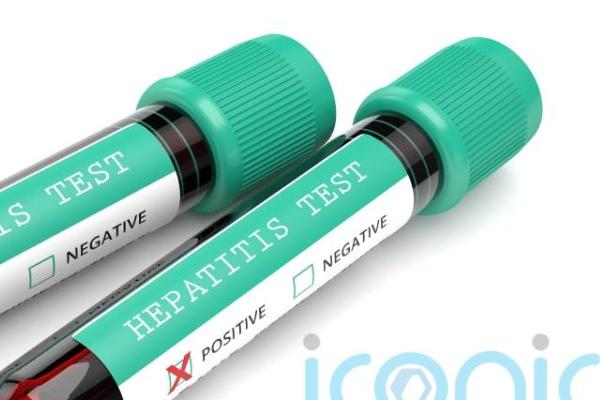A Complete Guide for Hormone Imbalance Symptoms

Strong 8k brings an ultra-HD IPTV experience to your living room and your pocket.
A Complete Guide for Hormone Imbalance Symptoms | Healthcare 360 Magazine
Hormones are the body’s chemical messengers, playing crucial roles in regulating numerous bodily functions, from metabolism and growth to mood and reproductive health. When these hormones are imbalanced, even slightly, they can lead to a range of health issues. Understanding the symptoms of hormone imbalance can help you identify and address potential problems early. This comprehensive guide will cover the various signs of hormone imbalance, their causes, and potential treatments.
What is Hormone Imbalance Symptoms?
Hormone imbalance occurs when there is too much or too little of a hormone in the bloodstream. Because of their essential role in the body, even minor hormonal imbalances can cause significant effects throughout the body.
Common Hormone Imbalance Symptoms
A Complete Guide for Hormone Imbalance Symptoms | Healthcare 360 Magazine
Hormone imbalance can manifest in numerous ways, affecting both men and women differently. Here are some common symptoms:
1. Fatigue
Chronic fatigue and unexplained tiredness can be a sign of hormonal imbalance, particularly involving the thyroid hormones. Hypothyroidism, a condition where the thyroid gland doesn’t produce enough hormones, is a common cause of persistent fatigue.
2. Weight Gain or Loss
Unexpected weight gain or difficulty losing weight can indicate hormonal imbalances. For instance, imbalances in thyroid hormones, insulin, cortisol, or sex hormones like estrogen and testosterone can all contribute to weight fluctuations.
3. Mood Swings and Depression
Hormones significantly impact brain chemistry and mood regulation. Imbalances in hormones such as estrogen, progesterone, and testosterone can lead to mood swings, anxiety, and depression. These symptoms are often observed in conditions like PMS, menopause, and andropause.
4. Irregular Periods
For women, irregular menstrual cycles can be a clear indicator of hormonal imbalance. Conditions like polycystic ovary syndrome (PCOS), thyroid disorders, and high levels of stress can all disrupt regular menstrual patterns.
5. Insomnia and Poor Sleep
Sleep disturbances, including insomnia and poor sleep quality, can be related to hormonal imbalances. Melatonin, cortisol, and sex hormones like estrogen and progesterone play crucial roles in regulating sleep patterns.
6. Skin and Hair Changes
Hormonal imbalances can cause noticeable changes in skin and hair. For example, acne breakouts, dry skin, thinning hair, and excessive hair growth in unusual areas can all be linked to hormonal issues such as PCOS, thyroid disorders, or imbalances in androgens.
7. Reduced Libido
A decline in sex drive can be a hormone imbalance symptoms. Low levels of estrogen, testosterone, or thyroid hormones can all contribute to a decreased libido in both men and women.
8. Digestive Problems
A Complete Guide for Hormone Imbalance Symptoms | Healthcare 360 Magazine
Hormones influence digestion and gut health. Imbalances can lead to symptoms like bloating, constipation, diarrhea, and nausea. Conditions such as irritable bowel syndrome (IBS) are often linked to hormonal fluctuations.
9. Memory and Concentration Issues
Cognitive functions like memory and concentration can be affected by hormone levels. Thyroid hormones, estrogen, and cortisol all play roles in brain health and function, and imbalances can lead to brain fog and memory problems.
10. Appetite Changes
Changes in appetite and food cravings can be driven by hormonal fluctuations. For instance, imbalances in insulin and leptin can affect hunger and satiety signals, leading to overeating or a lack of appetite.
Causes of Hormone Imbalance
Several factors can contribute to hormonal imbalances, including:
Stress: Chronic stress increases cortisol production, which can interfere with the balance of other hormones.
Poor Diet: Nutritional deficiencies and a diet high in processed foods can disrupt hormone production.
Lack of Exercise: Physical inactivity can contribute to weight gain and hormone imbalance.
Sleep Deprivation: Inadequate sleep can disrupt the production of hormones like melatonin, cortisol, and insulin.
Environmental Toxins: Exposure to endocrine-disrupting chemicals found in plastics, pesticides, and other pollutants can affect hormone levels.
Medical Conditions: Disorders such as thyroid disease, diabetes, and PCOS can directly cause hormonal imbalances.
Medications: Certain medications, including birth control pills and hormone replacement therapy, can impact hormone levels.
Aging: Natural hormonal changes occur with aging, particularly during puberty, pregnancy, and menopause.
Diagnosing Hormone Imbalance
A Complete Guide for Hormone Imbalance Symptoms | Healthcare 360 Magazine
If you suspect a hormone imbalance, it’s essential to consult with a healthcare provider. Diagnosis typically involves:
Medical History and Symptoms Review: Discussing your symptoms and medical history helps narrow down potential causes.
Physical Examination: A physical exam can reveal signs of hormonal imbalance, such as changes in weight, skin, and hair.
Blood Tests: Blood tests measure hormone levels, such as thyroid hormones, estrogen, testosterone, and cortisol.
Imaging Tests: Ultrasound, MRI, or CT scans may be used to examine the glands responsible for hormone production.
Treatment Options for Hormone Imbalance
Treatment for hormone imbalances depends on the underlying cause and the specific hormones involved. Here are some common approaches:
Lifestyle Changes: Diet, exercise, and stress management can significantly impact hormone levels. A balanced diet rich in whole foods, regular physical activity, and mindfulness practices can help restore balance.
Medications: Hormone replacement therapy, thyroid medications, and insulin management for diabetes are some treatments used to address specific hormone imbalances.
Supplements: Certain supplements, like vitamin D, omega-3 fatty acids, and adaptogenic herbs, can support hormone health.
Alternative Therapies: Acupuncture, herbal medicine, and chiropractic care are alternative treatments some people find helpful.
Surgery: In rare cases, surgery may be necessary to address conditions like tumors on hormone-producing glands.
Preventing Hormone Imbalance Symptoms
Prevention strategies can help maintain hormonal balance and overall health:
Healthy Diet: Focus on a diet rich in fruits, vegetables, lean proteins, and healthy fats. Avoid excessive sugar and processed foods.
Regular Exercise: Engage in regular physical activity to help regulate hormones and maintain a healthy weight.
Stress Management: Practice stress-reducing techniques like yoga, meditation, and deep breathing exercises.
Adequate Sleep: Aim for 7-9 hours of quality sleep each night to support hormone production and regulation.
Avoid Toxins: Reduce exposure to environmental toxins by choosing natural cleaning products, avoiding plastic containers, and eating organic when possible.
Conclusion: Balancing Your Hormones for Better Health
Understanding and recognizing the hormone imbalance symptoms is the first step towards achieving better health and well-being. If you suspect you have a hormone imbalance symptoms, seeking medical advice and undergoing appropriate tests can help identify the underlying causes. With the right treatment and lifestyle changes, you can restore hormonal balance and improve your quality of life.
Note: IndiBlogHub features both user-submitted and editorial content. We do not verify third-party contributions. Read our Disclaimer and Privacy Policyfor details.







